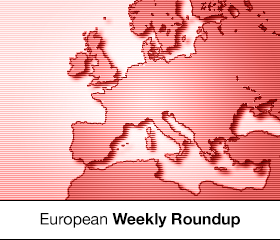Google Gets Publishers to Obtain EU Visitors’ Consent; InMobi Partners Samsung For Display
by Sonja Kroll on 31st Jul 2015 in News


In this week’s ExchangeWire European Weekly Roundup: Google reacts to EU cookie ruling; InMobi partners with Samsung; According to the Eyeota Index audience data spend soars in the UK; and AOL relies on Java 8 for the push into the programmatic future.
Changes to Google's User Consent Policy Affecting Publishers
Reacting to the EU cookie-notification ruling, Google has updated its user consent policy. The European compliance regulations around cookies are nothing new - the UK, Denmark and Estonia were the first to implement cookie regulations in their national law in 2012.
Google's new user consent policy is a move that will not only impact Google-owned web property but also publishers who are using Google services such as AdSense and DoubleClick for Publishers or DoubleClick AdExchange.
Google now requires publishers to request their European site visitors' consent before storing or using their data. This may come as no surprise to Europe-based publishers.
However, since the focus of the regulations is the origin of the users, not the territory in which websites are based, publishers based outside the EU will also be affected, and need to obtain their users' consent for storing and accessing data via cookies.
This also applies to iOS and Android applications. Google is pushing for publishers to update their own consent policies by September 30th, 2015. To assist publishers in implementing a consent mechanism on their websites, Google unveiled their resource website cookiechoices.org earlier this month.
The site provides tools and information, enabling publishers to change their consent policies according to EU regulations.
InMobi-Samsung Partnership Sets Sights on 650 Million Smartphone Users
Mobile advertising specialist InMobi is partnering with hardware manufacturer Samsung in order to bring display ads onto smartphones more effectively.
Previously known for its ad technology that displays ads within applications such as Uber or Flipkart, the new partnership aims to embed InMobi's ads on the home or lock screens of Samsung devices, bypassing applications.
While the deal with Samsung will effectively widen InMobi's advertising reach, the company may also gain valuable insights into the device owner's usage patterns and locations.
Ahead of a future US-based IPO, the partnership with Samsung may also set InMobi up for diversifying from a pure play ad tech play to providing data insights.
Sociodemographic Data as the ‘Backbone’ for Programmatic Campaigns
Sociodemographic data is by far the most popular segment category, when it comes to audience data. That is the conclusion of the Eyeota Sector Spend Index for Q1 2015.
Tracking thousands of campaigns and collecting data helped Eyeota identify the advertising sectors which make most use of audience data, as well as ranking the segments that are used for customer targeting.
Sociodemographic data and purchase intent accounted for 69% and 19% respectively of the data spend in the UK during the first quarter.
The biggest data spenders in the UK are travel and leisure, which have overtaken the automotive sector. The Price Index identified government organisations, charities and finance as the sectors that placed a premium on targeting data, a development that reflects the UK general election in May.
However, automotive remains unbeaten when it comes to paying highest premiums on targeting data in order to reach high-value users to sell their luxury vehicles to.
The UK trends are by and large reflected by the European developments: travel and leisure data spend surpassed automotive. However, compared with Q4, sociodemographic data spend fell 53% in Europe, with purchase intent data experiencing a growth of 20%.
Charities, travel and leisure, finance, multi-media, and sports were the biggest growth sectors across Europe – a similar picture as in the UK where finance and FMCG replace multimedia and sports in the ranking.
Eyeota's CEO, Kevin Tan, commented: “The United Kingdom is a developed market for programmatic ad spend. In Q4, the rate of growth in the UK was lower than overall growth in Europe, which was something expected for such an advanced market.
"However in Q1, the UK’s growth in audience data – set against a backdrop of a seasonal slowdown across Europe and worldwide – signals a continued demand for audience data."
AOL's programmatic future is based on Java 8
AOL continues to throw engineer resource at its programmatic offering. The Dublin operations of the American internet giant are currently focussing on getting front- and back-end systems up to scratch, relying on the latest iteration of Java to create systems that can deal with billions of bid requests day by day.
Its current number of bid requests – between 15 billion and 20 billion per day – is set to rise to more than 60 billion per day over the next six months.
According to John McClean, AOL systems architect in Dublin, Java 8 is at the core of AOL's move for programmatic.
"We need to write our software so that it can execute in parallel across multiple cores. Java 8 is an evolution of the Java language that makes it a little bit easier for developers to write code that will execute well in parallel", he told Siliconrepublic.
The AOL team in Dublin is currently transitioning into adopting Java 8 for their programmatic software development and plans to continue extending its workforce that is comprised exclusively of tech roles.








Follow ExchangeWire